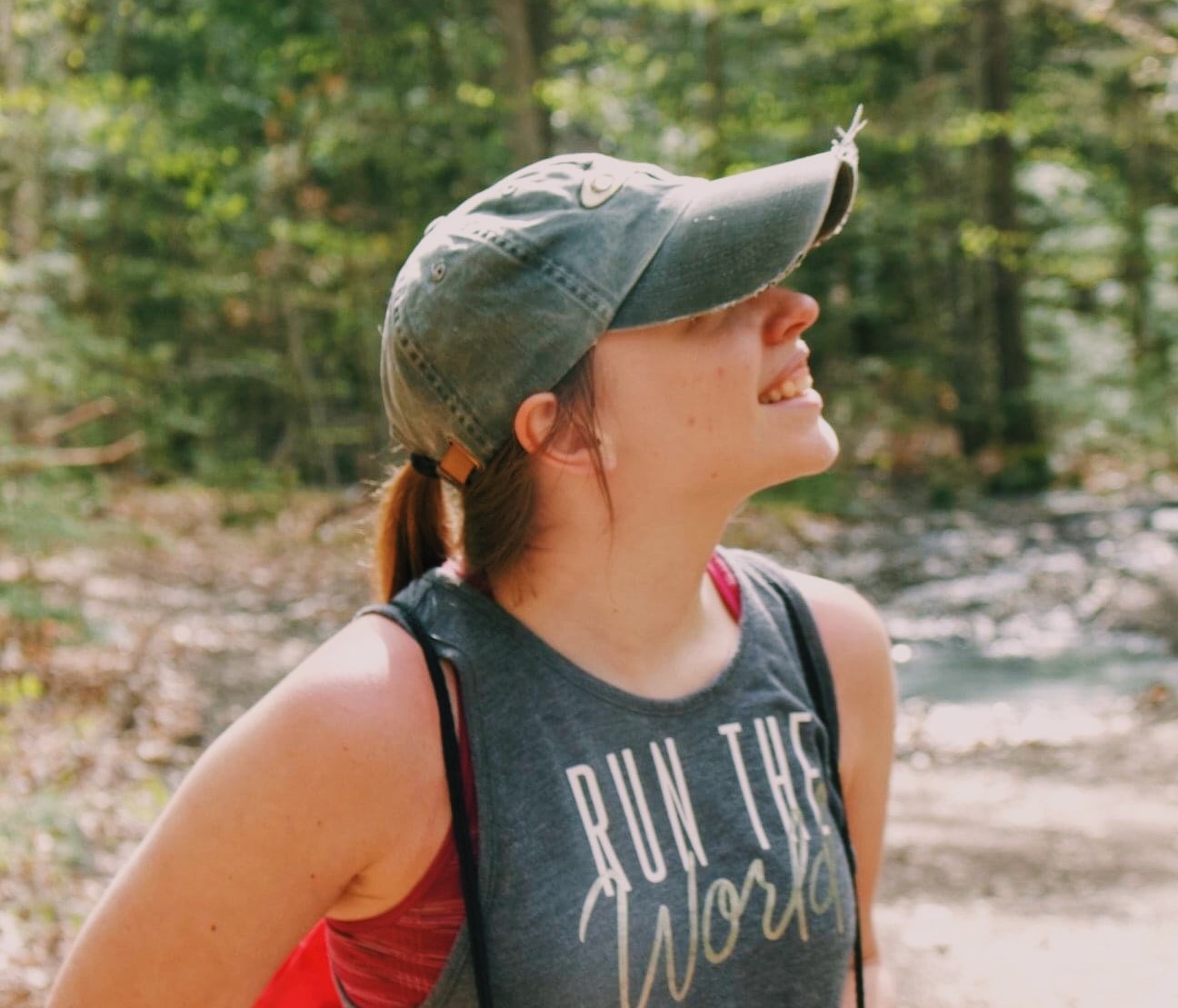I didn’t realize how exhausted I was until I stepped off the plane on a Wednesday evening in Des Moines, Iowa, only to have my body react to my go-go-go energy with an ear infection, sinus infection, and stomach pain—all at the same time.
Since moving to the hustle and bustle of Boston, Massachusetts only a month prior, I hadn’t had a moment to sit and be still, evidenced by the fact that my body was now betraying me. Which, if you ask me, was rather rude.

In Boston, it felt like there was always somewhere to go and something to do—whether that was trying to fix a broken dishwasher, grabbing drinks with friends, or telling myself that that was the last donut excursion I’d make that week. (Hint—it never was). It was the “city life” I’d always dreamt of, and yet, a city life that left me feeling burned out.
Arriving in Iowa at 12:48 a.m., I couldn’t help but feel resentful of my body and the way it decided to stop functioning the same weekend I was visiting my best friend for the first time in two years. We had a whole trip planned out with food, destinations, and classic best friend catch-up sessions like the ones that you see in the movies, but all I could muster up the energy for was drinking tea and watching bird documentaries at 9 o’clock on a Saturday night. Pitiful. I know.
Still, between the bird documentaries and the long country roads lined quite literally with corn, I found myself taking longer and deeper breaths—the kind I hadn’t had since moving out to Boston.
Despite my best efforts, I realized Boston had brought me right back to the person I always was before life forced me to slow down: overbooked, overextended, and always exhausted.
It’s a symptom of the self-help book era in my life that I’ve always tried to shake, but never quite lost—the part that echoes the advice of authors and speakers who tell me “everything is possible,” “you only live once,” and the classic, “just say yes.”
While inspirational, I’ve grown to find these adages not just unrealistic, but also damaging in terms of how they taught me to view myself.
In the eyes of the self-help industry, humans are invincible, infallible, and capable of any dream or task set before them. It’s wildly romantic and encouraging to hear, and also nearly impossible when considering our bodily limitations and what it means to be human.
It’s easier to believe that we roam the Earth as gods among mortals like self-help books suggest. It’s much harder to recognize that we, too, are bound to the sacred laws of the universe.
Luckily, unlike me and my chronic inability to turn down any offer out before me, the environment has no qualms with saying “no” to excess—whether that be no to excessive use of soil (by failing to yield healthy crops until the soil has time to restore itself), or no to excessive changes in the environment (evident in the form of animal adaptation). Carrying capacity, or the scientific concept of habitat limits, shows how an overextended habitat will fail to provide for the species that live there in terms of resources (water, shelter, and food) when it exceeds its maximum load. The environment, it seems, is a tapestry of delicately balanced ecosystems, supported primarily on the foundation of rest and resistance to the hustle culture we often pride ourselves on.
In nature we see bears hibernate in the winter and crops yield only in certain seasons, and yet we believe ourselves immune to the natural balance between rest and work. We get caught up, instead, in our side hustles and responsibilities, only stopping when our bodies tell us we’ve gone too far or, in my case, when we hole up in our friend’s apartment nursing an ear infection with pharmacy antibiotic ear drops.
That’s not to say that infection is the fault of the infected person (disease and sickness is often a combination of proximity and luck, or, in other cases, genetics), but rather a reminder of how rest and saying “no” can provide an extra layer of security to our health and well-being.
More so than saying “yes” to every opportunity, we need to say “yes” to the needs of our body—listening to those sleepless eye flutters or the cramps in our stomachs that tell us that something is not quite right. It may be inconvenient (it often is), but prioritizing the sacred limits of our bodies over the opportunities and “yes’s” in our lives may be the most sage wisdom one can gather from the environment around us.
I take courage in the fact that, oftentimes, saying no to one thing can often allow us the opportunity to say yes to something else. In the world of sustainability, saying no to disposable plastic, paper products, and throwaway items allows us to say yes to a healthy, sustainable environment that needs our protection to help maintain its own sacred balance.
In a society that tells us to say yes without rhyme or reason, I take rest in the power of “no” and the slow, intentional process of curating a life.
It’s time we carry our sustainable mindset from the environment to ourselves, allowing ourselves the time to rest and see the world for what it really is—a short gift of time allotted to us, to make every moment—both in rest and in action—count, if only we let it.
Also by Dana: I Tried The Happiness Project, An App That Aims To Find The Universal Formula For Happiness
Get more like this—Sign up for our daily inspirational newsletter for exclusive content!
__
Photo: Dana Drosdick




